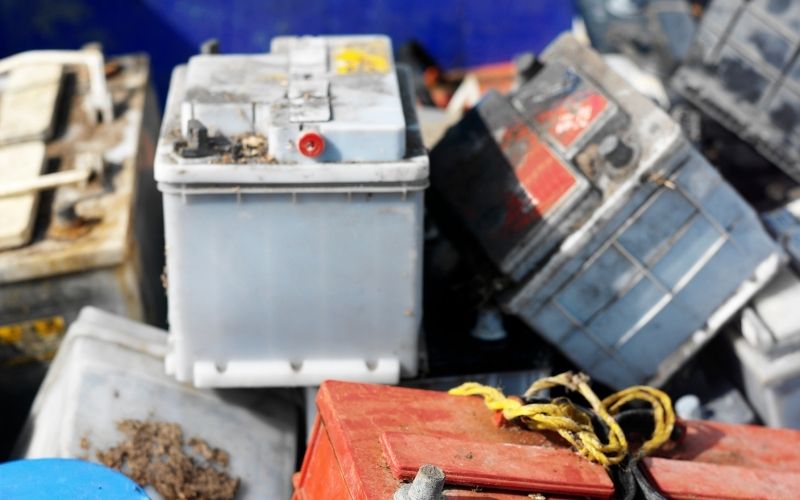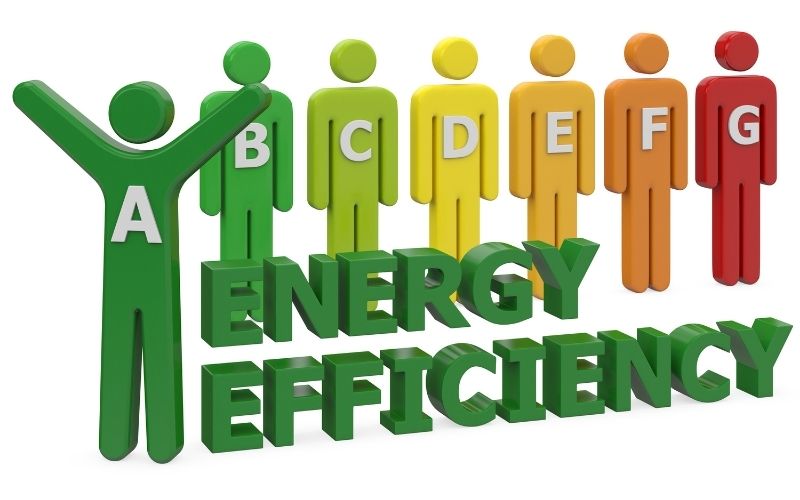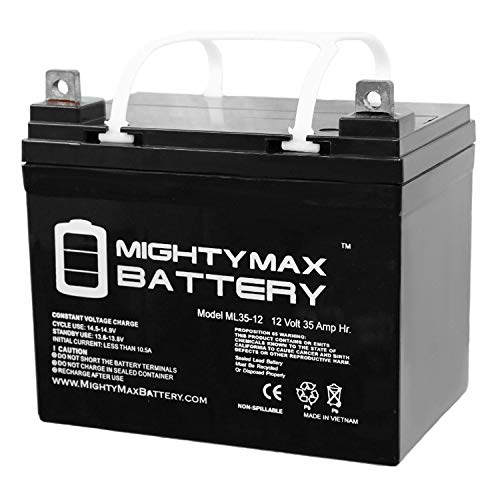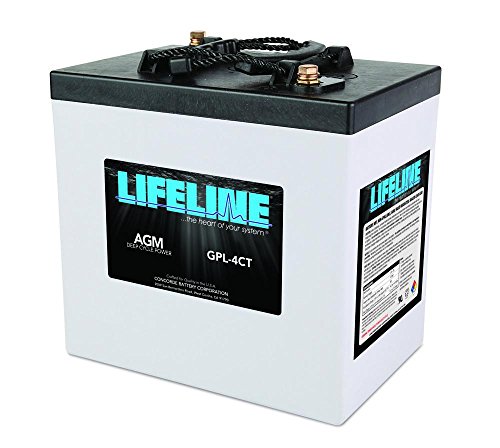If you suspect your marine battery is beginning to fail, you may wonder if there’s anything you could have done to prevent it. Perhaps it seems the battery should have lasted longer, but then you realize you’re not even sure how long it was supposed to last.
How many years can you expect to get out of a marine battery? What things may kill a battery prematurely, and what are some tips for extending a battery’s life?
Keep reading!
In this article, we’ll answer all of these questions and more.
Table of Contents
How Many Years Does a Marine Battery Last?

It’s impossible to make a blanket statement about how long a marine battery will last. The life of your particular battery will depend on multiple factors, including:
- Battery type: There are different batteries, each with different average life expectancies. Marine batteries may be flooded lead-acid, AGM, gel, or lithium, and each of these battery types is made differently from the others.
For example, lithium batteries are designed to last much longer than flooded lead-acid batteries. This is a result of the style, construction, and materials used for each battery. - Quality: Even two of the same type of battery may not have the same lifespan. If, for example, you were to spend some extra money on a high-quality lithium battery, it would probably last a lot longer than a more cheaply-made lithium battery.
What’s more, a battery’s quality may have more to do with its lifespan than the type of battery it is. For example, a well-made lead-acid battery may last longer than a poorly-made lithium battery. - Care: How you care for your battery will also play a role in duration. If you keep it properly charged, give it the proper maintenance, and keep it clean, it will give you more years of service than if you neglect these basic care methods.
- Proper usage: In addition to proper care, it’s important that you only use the battery as it is intended to be used. You wouldn’t want to try using a 12V battery to operate a 24V trolling motor–this would destroy the battery quickly.
Only use marine batteries on your boat, and make sure they are large enough to safely operate everything you have hooked up to them. - Exposure: if you leave your battery out on the boat, and don’t have it in a protective battery box, then it will wear down more quickly from exposure to UV radiation, temperature swings, and moisture.
-
- To extend your battery’s life, bring it inside when you’re not using it.
- If you must leave it on your boat, make sure it is in a sheltered location, such as a battery box or a battery compartment.
- Dry it off as soon as possible if it gets wet.
All of these factors aside, each battery type has an average life expectancy. Typically, flooded lead-acid batteries last two to three years. AGM and gel batteries may last a couple of years longer. Lithium batteries tend to last ten years or more.
Again, though, even these averages may vary depending on a battery’s quality, proper care, how it’s used, and what it’s exposed to.
What Kills a Marine Battery?

Several things can kill your marine battery and shorten its lifespan.
Marine batteries are generally waterproof, but they should not be submerged in water. Complete submersion can allow water to get inside the battery, potentially causing irreparable damage.
Flooded lead-acid batteries may die if mounted on their side, tipped over, or jostled so much that they leak battery fluid. The fluid may damage any internal components that it isn’t supposed to come in contact with.
Saltwater may corrode some marine batteries unless they’re specifically made to withstand this type of exposure. If you do a lot of saltwater fishing, make sure to invest in a corrosion-resistant battery and clean the battery as soon as possible if it is sprayed with saltwater.
Leaving your battery out in the weather for long periods, especially with infrequent use and lack of maintenance, may also kill the battery. To extend the life of your marine battery, it needs to be maintained, kept fully charged between uses, and sheltered from the elements.
Overdrawing, short circuiting, and over- and under-charging your battery can all cause damage as well. Batteries that sustain such electrical damage may be irreparable.
Some batteries have built-in battery management systems which may prevent most electrical issues, and wiring fuses or circuit breakers to your battery can help protect against damage as well.
Using a marine battery in ways it isn’t supposed to be used can kill your battery. As noted above, you shouldn’t use a 12V battery for a 24V trolling motor unless you have two 12Vs wired in series.
Draining the battery repeatedly, and discharging it further than it is designed to be discharged, will also cause it to die prematurely.
How to Make a Marine Battery Last Longer?
In this section, we’ll discuss some tips for how to get the greatest number of years out of your marine battery.
Tip #1: Check Your Battery Often
Every time you get back from a fishing or boating trip, inspect your battery, looking for any visible damage or corrosion. Thoroughly dry the battery if it has gotten wet. Check to make sure it has been charged or is currently charging.
If you don’t go out on the water very often, perform these basic battery inspections on a regular basis. Remember, neglect can harm your battery as much as over or improper use. Checking the battery, maintaining a full charge, and inspecting for damage will help it last longer.
Tip #2: Cut Down on the Power You Use

Before hooking up any devices to your battery, it’s important to have a general idea of how much power they’re going to draw. If drawing at or near the battery’s capacity, you may want to invest in a larger battery or reduce the number of devices connected to it.
If you consistently draw a maximum number of amps from the battery, it will wear out more quickly. To extend its life, cut down on the amount of power you draw regularly.
Tip #3: Use an Alternator Smart Charger
If your boat has an alternator that recharges your battery, it might be a good idea to invest in an alternator smart charger. This device will make sure that more of the charging power will reach your battery, allowing it to recharge more completely than a typical regulator.
For more information, check out this article from the UK’s Boats.com.
Tip #4: Supplement With a Solar Panel

Adding a small solar panel to your boat will allow your batteries to recharge even when you’re not using them regularly. What’s more, a solar panel will act as a battery maintainer, keeping the battery fully charged and ready for your next trip out on the water.
Tip #5: Get a Larger Alternator if Possible

Boats with alternators might benefit your batteries if you can upgrade to a larger alternator size. Generally speaking, the bigger the alternator, the more energy will be transferred to your battery while the alternator’s running.
Of course, getting a larger alternator isn’t always possible, but it might be worth seeing if there is an alternator upgrade available for your specific boat.
When Should I Replace My Marine Battery?
You’ll know when it’s time to replace your marine battery when it starts showing signs of damage or corrosion, or when it no longer holds a charge as it should.
If you suspect it may be time to replace the battery, check its voltage with a multimeter . If it is showing anything below about 12 to 12.8 volts (for a 12V battery), then it may be time to replace it.
FAQ
1/ Can a Marine Battery Last 10 Years?
It depends on the type and quality of the battery, as well as how you take care of it. But yes, some types of marine batteries can last this long.
Lithium batteries, in particular, are generally expected to last 10 years or even longer. Some lithium batteries come with a 10-year warranty.
Even some other battery types may last nearly 10 years if they are high-quality, properly maintained, well cared for, and kept away from elements.
2/ How Long Does a 12V Marine Battery Last?

As noted above, there are different types of batteries: flooded lead-acid, AGM, gel, and lithium. Each of these batteries comes in 12V and 24V options, and sometimes 36V and 48V options are also available.
How long your battery lasts depends primarily on the battery type, as well as things discussed above such as care, maintenance, exposure, and quality. This is true regardless of the battery’s voltage capacity.
3/ Which Marine Battery Lasts the Longest?

Generally, lithium batteries last the longest of any battery type.
It’s impossible to name a specific battery or brand that lasts longer than any other, as everyone may have different experiences. Remember, a battery’s quality is only one factor determining how long a battery will last; it also depends on care, maintenance, and exposure.
Conclusion
Marine batteries can last anywhere from 2 to 10 years or longer as long as they are well cared for and properly maintained. To get the most out of your battery’s lifespan, check the battery often, cut down on the amount of power you use, and clean it if it gets wet or dirty.

Sarah Hood has been writing for Anchor Travel since 2021. When she’s not writing, she enjoys cooking, singing, and spending time in the great outdoors.

